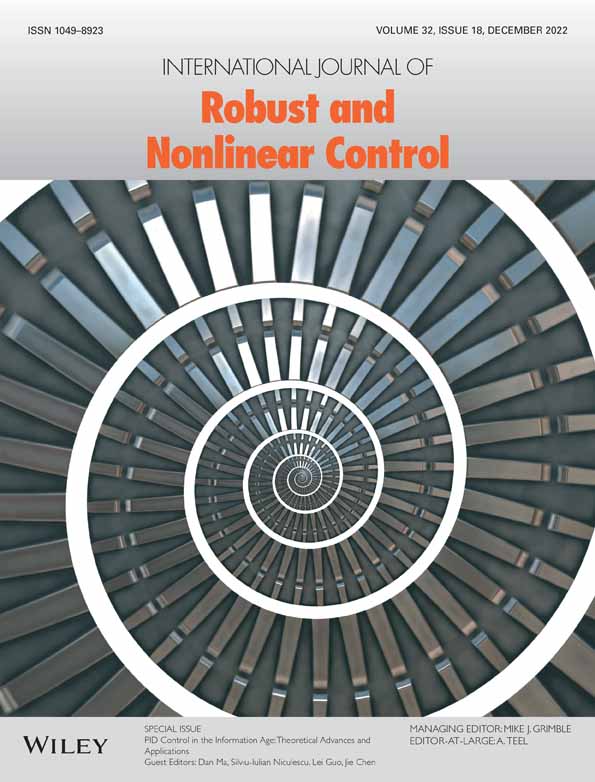Adaptive PID control of robotic manipulators without equality/inequality constraints on control gains
[Correction added on 17 November 2021, after first online publication: affiliation 1 has been corrected in this version.]
Funding information: National Natural Science Foundation of China, 52101365; LingChuang Research Project of China National Nuclear Corporation, Shanghai Sailing Program, 21YF1419800; State Key Laboratory of Ocean Engineering (Shanghai Jiao Tong University), GKZD010081; Young Talent Project of China National Nuclear Corporation
Abstract
This article proposes two novel adaptive PID controllers for the trajectory tracking of robotic manipulators with known or unknown upper bound of the uncertainties, respectively. The designed controllers are shown to be not only robust with respect to the uncertainties but also adaptive with reference to the unknown manipulator and load parameters. Lyapunov stability analysis is included to prove eventual local asymptotic tracking. The salient features of the two proposed adaptive PID controllers are as follows: (1) they guarantee the eventual asymptotic convergence of the manipulator joint position and velocity tracking errors to zero with no need of any equality/inequality constraints on the controller gains when compared with the classical PID controller and the existing adaptive PID controllers; and (2) they offer better robustness against uncertainties than the existing classical PID controller, the adaptive PD controller, the linear active disturbance rejection controller, and the nonlinear disturbance observer based adaptive PID controller. Simulation studies and comprehensive comparisons demonstrate the superiorities of the two proposed adaptive PID controllers.
CONFLICT OF INTEREST
The authors declare no potential conflict of interests.
Open Research
DATA AVAILABILITY STATEMENT
Data sharing is not applicable to this article as no datasets were generated or analyzed during the current study.




